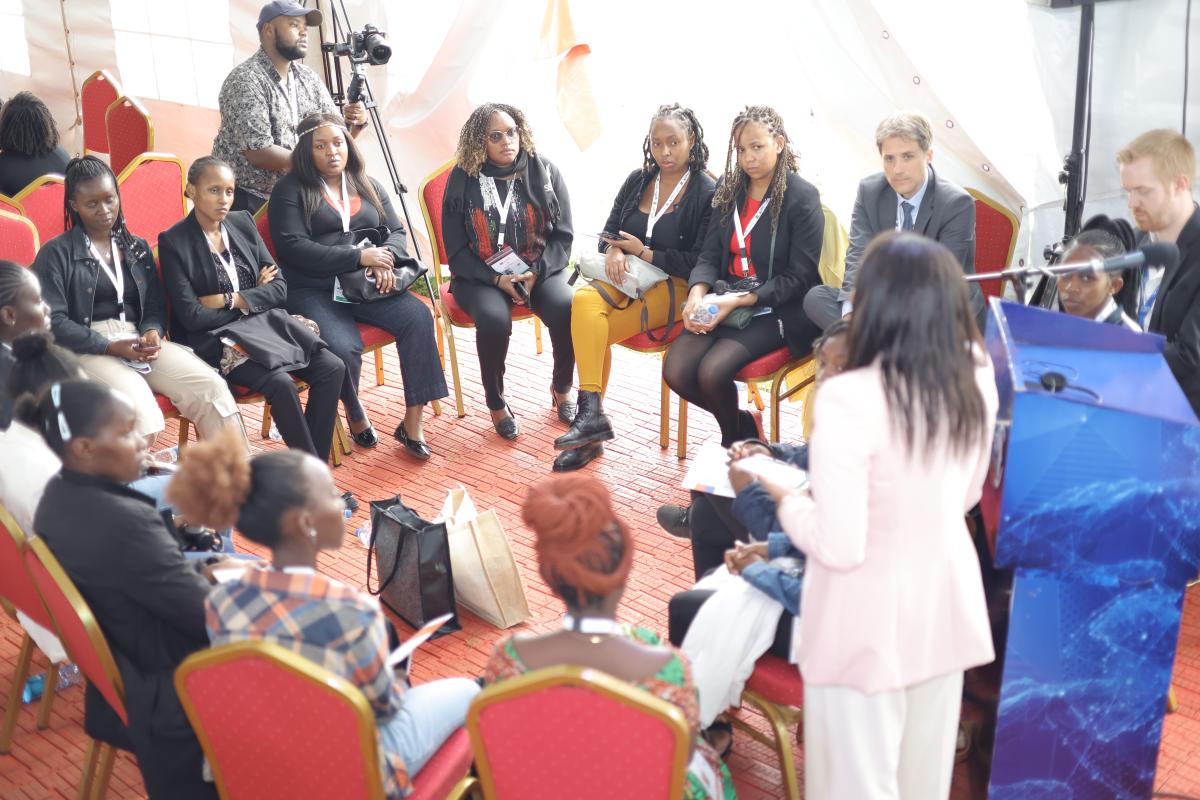Digital for Girls and Women Project Description
The Digital for Girls and Women project finances
initiatives in Belgium, Burkina Faso, and Uganda, aiming to empower women
and girls to fully leverage the opportunities presented by today's digital
society.
The project
is founded on the belief that enhancing access to and the effective
utilization of digital technologies can empower women economically and socially.
In 2021, internet access for women in Africa stood at just 24%, in stark
contrast to the 83% in Europe. Least-developed countries (LDCs) reported even
lower figures, with only 19% of women having internet access (source: ITU). The
gender digital gap poses significant challenges, particularly in the wake of
the COVID-19 pandemic, as digital skills become increasingly crucial (source:
UN Women).
Globally, gender
imbalances persist in fields such as ICT specialists, where the gender gap
is 82%, and STEM and ICT graduates, with a 65% gap. Machine learning
specialists and those in AI see even lower female representation at 12% and
13.83%, respectively[1].
However, this imbalance is more prevalent in the developing world, where
access to education is more challenging (source: UN Women). A survey showed
that many companies in Sub-Saharan
Africa (SSA) recruit internationally for digital talent because of the lack of
skilled locals. Nevertheless, SSA anticipates a demand for over 230 million
jobs requiring digital skills by 2030, highlighting a pressing need for both
basic and advanced digital skills across the region[2].
Furthermore,
the project seeks to empower women and girls to assert their digital rights.
Digital rights encompass access, use, and control of digital information and
technology. The European Commission emphasizes six principles in its
declaration on European Digital Rights and Principles, centered on a
human-centric vision[3].
The pan-African Declaration on Internet Rights and Freedoms champions
openness, freedom of expression, the right to information, knowledge
development and access, privacy, personal data protection, and gender equality.
This
pan-African declaration has garnered endorsement from various individuals and organizations
across 47 African countries, including many in Uganda[4].
The D4GW project aims to empower individuals, particularly women and girls,
to assert these digital rights amidst the rapid digital transformation
taking place in developing countries.
The final
objective of the Digital for Girls and Women project is focused on mainstreaming
of gender-related topics in digital for development (D4D), on Belgian and
European level, developing joint approaches and active knowledge sharing.
The Gender-strategy developed at the D4D Hub[5]
ingrains a gender transformative approach to equality and women’s empowerment
into the design and implementation of D4D hub policies, processes and work
streams and programs[6].
[1] Perifanou, Maria
& Economides, Anastasios. (2020). Gender Digital Divide in Europe.
International Journal of Business, Humanities and Technology. 10. DOI: 10.30845/ijbht.v10n4p2.
[2] Digital Skills in Sub-Saharan Africa, Spotlight on Ghana, A New
Study Explores Digital Skills in Sub-Saharan Africa,
International Finance Corporation (World Bank Group), in collaboration with
L.E.K. Consulting: digital-skills-report-flyer-5-22-19-web.pdf (ifc.org)
[3] European Digital
Rights and Principles | Shaping Europe’s digital future (europa.eu)
[4] Home | African Declaration on Internet Rights
and Freedoms (africaninternetrights.org)
[5] Join the Digital for Development
(D4D) Hub (d4dhub.eu)
[6] Micky Elanga, A
transformative and intersectional approach to placing women and girls' rights
at the heart of digital development, D4D Hub, Brussels 2024.
Latest news from this project
No news

